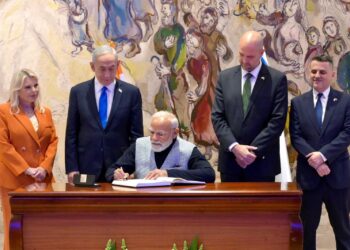The United States is cautioning Israel against proceeding with an operation in Rafah that does not prioritize the safety of Palestinian civilians, and suggesting a possible shift in Gaza policy if such actions are pursued.
US National Security Communications Adviser John Kirby reiterated President Joe Biden’s stance on a Rafah operation, stating Israeli leaders are aware of the US position. Kirby highlighted Biden’s sincerity regarding potential changes to Gaza policy if civilian protection is not adequately addressed.
US Secretary of State Antony Blinken echoed these sentiments during his recent diplomatic visit to Saudi Arabia, Jordan, and Israel. He stressed the necessity of any Rafah operation to ensure the safety of the ~1.3 million Palestinian civilians who are seeking refuge in southern Gaza.
Blinken, during his visit, expressed that the US had yet to see a viable plan for a Rafah operation that would safeguard civilians. He reiterated this stance in an interview with NBC.
Blinken dismissed the rhetoric and called for an immediate ceasefire and safe return of hostages held by Hamas.
Netanyahu, however, remained resolute in his commitment to pursuing military action in Rafah, viewing it as a strategic move against Hamas. While the US and international community have voiced concerns about the humanitarian consequences, Israel sees it as a pressure tactic to compel Hamas to negotiate.
The US continues to engage with regional counterparts, including Qatar, in hopes of securing a ceasefire agreement and facilitating the release of hostages.
Saudi Arabia / Israel relations
State Department spokesperson Matthew Miller says the United States and Saudi Arabia are on the verge of finalizing a significant agreement, providing Riyadh with security assurances while aligning the Gulf kingdom more closely with US interests. However, Miller says the deal’s completion rests on a crucial normalization aspect, contingent upon Israel’s willingness to pave the way for a future Palestinian state.
Before the October 7th, 2023 invasion and massacre by Hamas into Israel, Saudi Arabia and Israel were coming close to a normalization deal.
Despite progress on bilateral aspects, Netanyahu’s steadfast opposition to concessions undermines the initiative, insisting it would embolden Palestinian terrorism. Miller remains optimistic about resolving remaining details swiftly, emphasizing Secretary of State Antony Blinken’s discussions in Riyadh, which encompassed broader issues like Gaza’s reconstruction and security.
While US-Saudi alignment on the initiative’s terms is likely, Riyadh insists on Gaza “calm” and Palestinian statehood as prerequisites for finalizing the deal, stressing the package’s comprehensive nature. Miller rebuffed claims that a deal lacking normalization support is feasible, asserting both nations have an unwavering commitment to a comprehensive agreement.
























Discussion about this post